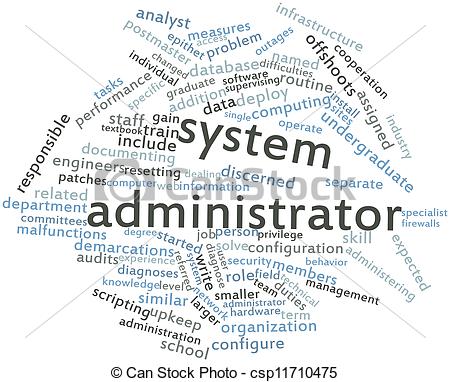If you’ve spent much time interacting with system administrators, you know how unlikely it would be for them to host a relationship-fixing TV show. Were they born like this, or did IT support requests just grind them into jaded powder? With a combination of endless patches, glitches, and caffeinated techno pulsing in the background, they do get edgy (and court the look of pallor). Want to mend your sysadmin relationship? On this Systems Administration appreciation day, we give you a few tips to help mend fences.
- Own your problem – Sure, they get hired to fix stuff, but they don’t think they got hired to fix you. You fix you. If you keep plugging your Ethernet cable into your USB port and then calling support, don’t be surprised when they feign a foreign language and change the phone number in the company directory. You have a > 50/50 chance of causing stuff to break, and if you do, a simple “sorry” and a bit of listening will go a long ways to help. If you just can’t resist the urge to plug stuff in wrong, be very nice to them. They’ll continue to fix stuff. Butter them up, your stuff will work better for longer, and they’ll probably even take the voodoo doll – you know, the one in their cubicle that looks an awful lot like you, with all the pins in it – off the shelf. You might even take yours down too.
- Don’t spill > 30 ounces of Coke on your computer – Ask me how I know. Customer complained of sticky keys. If you really just did “something bad” and you’ve observed tip #1, you might be in clear…ish. You see, stuff happens, and they know this. Self-deprecation (if for sake of winning the war) is definitely at play here. Snarky self-deprecation for < 5 seconds can help them WANT to peel the Coke-infested computer bits apart like a soggy term paper, and get it back to you sometime before the next time you need a haircut. Be mean, and you’ll definitely need the haircut first.
- If something bad happens, tell them sooner rather than later. If your computer suddenly and inexplicably starts shredding its own file system, next Tuesday would not be a good time to drop a line. Sure, you can brace yourself for the response you might get, but right now there’s at least some chance of triaging your data and averting a larger smoking hole of a disaster in the radius around your workplace. Wait until Tuesday and that will almost certainly not improve the situation, unless you want to live-stream their reaction and upload it to sysadmin-behaving-badly.com to share with others similarly situated.
- Spend more than 5 seconds researching before you call – My colleague Bruce Burrell is fond of recommending lmgtfy.com – go ahead, I’ll wait here until you get back – as a support tool. The Internet is wonderful. At the very least, it will help you formulate your questions, in case you catch IT in a spiky phase (some spiky phases last longer than others).
- Fight the urge to click on stuff – While it is possible that you’ve made millions and they need to ship it to you, don’t click on the attachment that purports to have the details. Phishing attempts succeed with startling regularity. And they get more convincing all the time, especially if scammers can mine data about people who might normally send you requests. If, however, you are overcome by temptation and your computer hemorrhages immediately after you click and starts eating your file system, see tip #3.
Bonus :
Buying caffeinated things for sysadmins usually helps. If $4 in coffee can make your life simpler in the long run, it’s worth it, even if you don’t get any relationship advice from them. One day soon, you might need it. Also, you may be able to get rid of that voodoo doll.[su_box title=”About ESET” style=”noise” box_color=”#336588″] ESET is a pioneer of proactive protection against cyber threats with its award-winning NOD32 technology. Daily, it protects over 100 million computers, laptops, smartphones, tablets and servers, no matter the operating system. ESET solutions for home and business segment deliver a continual and consistent level of protection against a vast array of existing and emerging threats.[/su_box]
ESET is a pioneer of proactive protection against cyber threats with its award-winning NOD32 technology. Daily, it protects over 100 million computers, laptops, smartphones, tablets and servers, no matter the operating system. ESET solutions for home and business segment deliver a continual and consistent level of protection against a vast array of existing and emerging threats.[/su_box]
The opinions expressed in this post belongs to the individual contributors and do not necessarily reflect the views of Information Security Buzz.



